TEACHING PHILOSOPHY
The correct method in philosophy would really be the following: to say nothing except what can be said, i.e. propositions of natural science –i.e. something that has nothing to do with philosophy- and then, whenever someone else wanted to say something metaphysical, to demonstrate to him that he had failed to give a meaning to certain signs in his propositions. Although it would not be satisfying to the other person –he would not have the feeling that we were teaching him philosophy- this method would be the only strictly correct one.
Ludwig Wittgenstein: Tractatus Logico-Philosophicus.
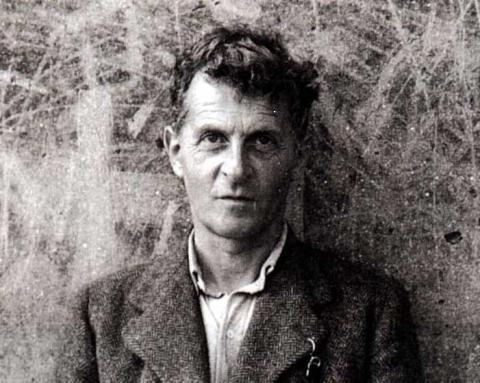
This very austere account of how philosophy should be taught reflects a particular view of philosophy itself. All intelligible claims ("what can be said") are statements about facts (here identified with "propositions of natural science"). Philosophical claims go beyond stating facts and so go beyond intelligibility. Because what is distinctively philosophical is unintelligible, teaching philosophy becomes a very negative affair, waiting for someone to say something philosophical and then pointing out the ways in which it fails to make sense. On that view of philosophy, it is hard to see that either teaching or learning it would be very rewarding. But sometimes the teaching encounter can be rewarding even in the context of bleak assumptions about its nature. Here is a sympathetic portrait (based on David Pears, who in real life did not make the bleak assumptions) of someone applying this method:
Dave’s pupils adore him, but there is a permanent fight on between him and them. They aspire like sunflowers. They are all natural metaphysicians, or so Dave says in a tone of disgust. This seems to me a wonderful thing to be, but it inspires in Dave a passion of opposition. To Dave’s pupils the world is a mystery; a mystery to which it should be reasonably possible to discover a key. The key would be something of the sort that could be contained in a book of some eight hundred pages. To find the key would not necessarily be a simple matter, but Dave’s pupils feel sure that the dedication of between four and ten hours a week, excluding University vacations, should suffice to find it. They do not conceive that the matter should be either more simple or more complex than that. They are prepared within certain limits to alter their views. Many of them arrive as theosophists and depart as Critical Realists or Bradleians. It is remarkable how Dave’s criticism seems so often to be purely catalytic in its action. He blazes upon them with the destructive fury of the sun, but instead of shrivelling up their metaphysical pretensions, achieves merely their metamorphosis from one rich stage into another. Occasionally he succeeds in converting some peculiarly receptive youth to his own brand of linguistic analysis; after which as often as not the youth loses interest in philosophy altogether. To watch Dave at work on these young men is like watching someone prune a rose bush. It is all the strongest and most luxuriant shoots which have to come off. Then later perhaps there will be blossoms; but not philosophical ones, Dave trusts. His great aim is to dissuade the young from philosophy. He always warns me off it with particular earnestness.
Iris Murdoch: Under the Net.
Sometimes teaching gives students some of the best of what philosophy has to offer:
Quite by luck, I went to University College London to read philosophy in the early 1960s. Here I was taught by Stuart Hampshire, Richard Wollheim, and Bernard Williams and, later, by Hide Ishiguro, Myles Burnyeat, and Jerry Cohen –such different people, but all with something in common: their love of ideas. I was astonished at the intellectual freedom that seemed to abound here: no longer an assumption that there were things that you must necessarily think, things that were obviously right or wrong. Our luck was to be taught by people who seemed to take any and every idea seriously, to follow it through, and to see where it went.
Margaret Cohen: Sent Before My Time, a Child Psychotherapist’s View of Life on a Neonatal Intensive Care Unit.
But sometimes things are less inspiring:
I do not know whether it is usual to teach philosophy as I was taught it. In the first lesson we were told that J.S. Mill’s Utilitarianism meant the greatest happiness of the greatest number and that, for Mill, happiness was the criterion of moral value. In the next tutorial we were told that Mill was wrong because he had forced himself into the position where, according to his criterion, a very happy pig might be considered morally better than a moderately happy human being. Obviously this was outrageous. Mill himself realized that it was unthinkable; accordingly he introduced standards of higher and lower kinds of happiness into his philosophy. Here he was caught out, because, if you talk of a higher happiness, your criterion which qualifies happiness is not happiness but something else. Next please. The next philosopher is Locke. We were told what he thought and then why he was wrong. Next please. Hume. Hume was wrong also. Then Kant. Kant was wrong, but he was also so difficult to understand that one could not be so sure of catching him out.
This might be described as the Obstacle Race way of teaching philosophy. The whole field of human thought is set out with logical obstructions and the students watch the philosophers race around it. Some of them get further than others but they all fall sooner or later into the traps which language sets for them. It soon occurred to me that it was useless to enter a field where such distinguished contestants had failed.
Stephen Spender: World within World.
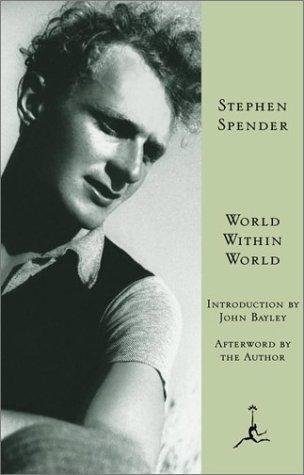
The approach to philosophy teaching experienced by Stephen Spender in the 1930's was often replaced in Britain after the Second World War by a less historical and more technical approach to the subject, emphasizing either the analysis of language or formal logic. But this approach too, even in the hands of its most brilliant practicioners, could be found alienating by students. The novelist who wrote under the name "Veronica Hull" had clearly not warmed to A.J Ayer's classes at University College London in the 1950's:
It's only a game after all," said Mr. Marble the senior lecturer dancing up to the blackboard with a chalk in his hand. "Look -unique instantiation- "a is uniquely instantiated" is equivalent to "it is not impossible to find b,c,d, such that a is a constituent of b, a is a constituent of c, d=bc..."
"Must get it in writing", thought Catherine, scrabbling around in a sort of nosebag.... She found a piece of paper. "£30 to last to December. Buy Christmas presents? Food. Things to cleaners. Remember Friday." She found another piece. "If there is no difference between verifiable results of False or meaningless e.g. King of France is bald -look and see- not only not bald but not there."...
He was well under way now... He had disposed of individuation and the problem of identity which was now chalked up in tiny and indecipherable symbols on the blackboard; and was launching into negation with ten minutes to go.
"What is "failing to find"?" he said again in a bright excited voice. "What is failing to find my cigarette case? Is it finding my paper the books the ashtray plus the rider that these are all the things on the table? How do we verify "my cigarette case is not on the table"? Was it this that worried Bradley?"...
Catherine was sitting by the window. Seminars got her down. And this problem of "failing to find" troubled her. She had failed to find anything. She wasn't sure whether she was Catholic any more; she wasn't at all sure whether logical positivism would be a satisfactory substitute; and on top of it all she had a ridiculous infatuation for the man who distilled doubt as cleverly and profitably as a bootlegger. She found the atmosphere of stale cigarette smoke and flippancy claustrophobic, and opened the window.
"What could Bradley mean by this?" said Mr. Marble, looking at the open window. He liked it stuffy. "What's the man talking about? "All negative judgments affirm that the quality of the real excludes a suggested ideal content, so all are existential." He tipped his chair back precariously, then swung forward on it. "Analytic or synthetic?", he said triumphantly. He leaned back again smiling and fiddling with a box of matches...
"Yes, yes, yes, I think we've got it at last. We'll finish negation off next week. Peter write a paper for me will you? I'm not entirely happy about negation yet."
Veronica Hull: The Monkey Puzzle.
ON GIVING UP PHILOSOPHY.
Ayer also appears in an account by someone else who was not inspired by analytical philosophy:
“Or” was a big thing in Oxford philosophy. The only known published work of Oscar Wood, our philosophy tutor at Christ Church, was an essay in Mind, the philosophers’ journal, entitled “Alternative Uses of “Or” ”, a work which was every bit as indeterminate as its title. Several years later he published another paper, this time for the Aristotelian Society, entitled “On Being Forced to a Conclusion”. Oscar looked like a cherub who had been spoiled by claret. He was simultaneously charming and miserable. To many of his pupils he became a lifelong friend. He and I never quite clicked. My kind of laziness wasn’t his. Besides, I found the linguistic brand of philosophy then in vogue as dry and sterile as those who taught it… My breaking point came in a New College lecture room where Professor A.J. Ayer, the legendary seducer and wit, was lecturing on the problems of induction. In his quick, dessicated voice, he invited us to consider an imaginary universe in which time was split up into an infinity of separate instants, none of which had any connection to the next. In such a universe how could we induce anything? It was intolerably stuffy in the room. The leaded windows were all shut, perhaps were already rusted up in Matthew Arnold’s day, and flies were buzzing against the panes as desperate to get out as I was. If this was philosophy, I could do without it and it could do without me…
When I switched to modern languages, I thought, or persuaded myself, that those four terms doing PPE had been a complete waste of time. What a farrago of nit-picking and logic-chopping I had been wading through, or most of the time not wading through. The curious thing is that, looking back today, I realise that during that brief period of intermittent attention I picked up, almost unwittingly, half the mental furniture that, scratched and battered no doubt, I still use.
Ferdinand Mount: Cold Cream.
By permission of Bloomsbury Publishing.
A FOOTNOTE TO VERONICA HULL AND FERDINAND MOUNT ON FREDDIE AYER:

Philosophy is a subject people tend not to find fairly interesting. More than most, it elicits love or hate. As an undergraduate, I too went to Freddie Ayer’s classes in New College, and found them some of the most open, lively, and stimulating discussions of my life. If this was philosophy, I couldn’t do without it, and I hoped the philosophers would not see how easily it could do without me.
A FOOTNOTE TO FERDINAND MOUNT ON OSCAR WOOD.
For two years I was a colleague of Oscar Wood’s, teaching philosophy at Christ Church, Oxford. He and I never quite clicked either. He was indeed charming as well as miserable, though his was the very dry charm of Eeyore. I was not on the Governing Body but I heard that there he defended me as someone the College would find worth keeping, when my job was controversial. (I chose to live in London rather than Oxford in order to spend my evenings with Vivette, whose work was in London.) But when we talked together he made it a point of honour to take a very gloomy view of anything I said about philosophy, and by implication of the quality of the thinking behind it. I respected him without ever feeling comfortable with him. Years later I respected him even more when I heard that, in Governing Body, bravely and alone he had opposed some honour for Lord Cherwell, a very senior Christ Church person and an adviser to Churchill, because he was also a major architect of the policy of saturation bombing of German cities.
Someone who learnt more from Oscar Wood:
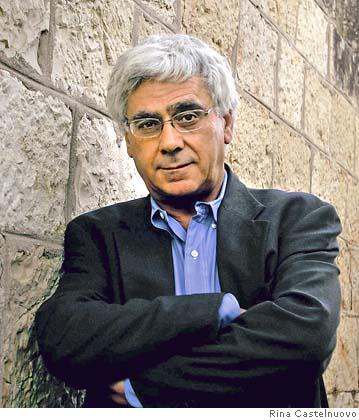
SARI NUSSEIBEH
Unfortunately, serious inroads into philosophy proved exasperatingly elusive. Troubles began with my first tutorials. As if by destiny, the first book I was given to read was Bertrand Russell’s Problems of Philosophy. A week later my tutor, to whom I still owe the deepest gratitude, pulled the rug out from underneath me, causing my seemingly incontrovertible world of ideas and facts to come crashing down. I was settled in the leather chair in his office and venturing forth into my commonsense epistemology when he let me have it. And when I tried to offer counterarguments, he finished them off, too. He did so with such remarkable ease that it seemed effortless. Making a cup of tea would have worked up more of a sweat.
The following week the same thing happened. After one more round of crawling out of his office utterly defeated, I had to admit that whatever certainty I had found over the previous year or two had gone. I was back to my familiar condition of floundering.
This condition was, in truth, considerably worse than the foglike state of my childhood. Now there was no safe harbor into which I could retreat…
I nevertheless kept going back to my tutor, and, as the semester wore on, it began to dawn on me that his ruthless attacks were not nearly as merciless as I had at first suspected. His was a Socratic method of challenging set beliefs and assumptions, if necessary by tearing away safe moorings and hallowed orthodoxies and legends. He wanted to inculcate in his students enough critical reflection and steeled intellectual discipline to allow them to live and think consciously, to open up doors of the mind previously sealed shut. He went beyond challenging my conscious views; far more disconcertingly, he forced me to question hitherto unquestioned assumptions, and to jettison them if they didn’t measure up. During one sitting, he quoted Francis Bacon’s belief that the mind has idols in need of being shattered.
Sari Nusseibeh: Once Upon a Country, a Palestinian Life.
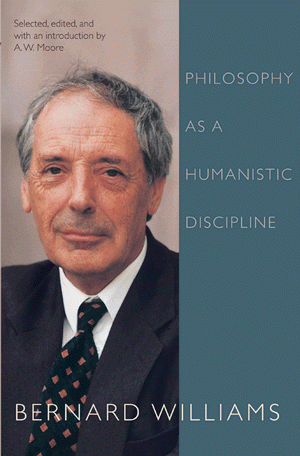
There is the question of what impression one gives of the subject in teaching it. Most students have no interest in becoming professional philosophers. They often take away an image of philosophy as a self-contained technical subject, and this can admittedly have its own charm as something complicated which can be well or badly done, and that is not to be despised. It also in some ways makes the subject easier to teach, since it less involves trying to find out how much or how little the students know about anything else. But if we believe that philosophy might play an important part in making people think about what they are doing, then philosophy should acknowledge its connections with other ways of understanding ourselves, and if it insists on not doing so, it may seem to the student in every sense quite peculiar.
We run the risk, in fact, that the whole humanistic enterprise of trying to understand ourselves is coming to seem peculiar. For various reasons, education is being driven towards an increasing concentration on the technical and the commercial, to a point at which any more reflective enquiry may come to seem unnecessary and archaic, something that at best is preserved as part of the heritage industry. If that is how it is preserved, it will not be the passionate and intelligent activity that it needs to be.
Bernard Williams: Philosophy as a Humanistic Discipline.
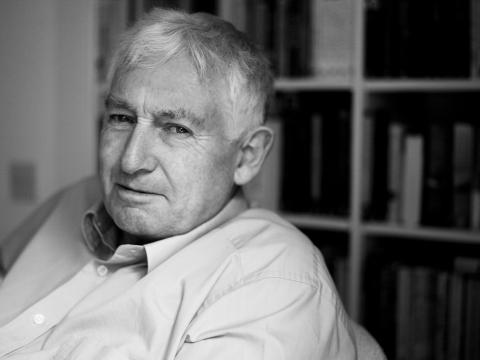
I taught philosophy for thirty years at New College, Oxford, and for the last twelve or so years have been teaching at the Centre of Medical Law and Ethics at King's College London. I teach on the MA in Medical Ethics and Law and on the MA in Human Values and Contemporary Global Ethics.
After some of these sometimes devastating accounts of philosophy teaching seen through the eyes of those being taught, it is obviously highly risky to include here this DVD of a medical ethics class I taught. It is a group doing the MA in Medical Ethics and Law. The risk is worth taking, as the students are the stars of the class, with their wonderful openness, argumentativeness and seriousness. I include this record of it so that when I say to people how much my life has been enriched over many years by students, I have something to refer people to, so they can see for themselves.
(For the first minute or so of this film patience is needed, as the camera captured me trudging down the long dark passages on the way to the classroom. Eventually I do get there and the class starts. On going down these passages to the uninspiring classroom I try to remind myself of those -including Socrates, Boethius, Condorcet, Russell, Gramsci and others- who somehow managed to think interestingly about philosophy even in prison.)
PHILOSOPHY TEACHING AND INTELLIGENCE SERVICE RECRUITMENT.
In the mid-1990s, when I was teaching at New College, Oxford, I was called one day at my house in London by someone from the Foreign Office. He said they were concerned that they were not getting such good recruits from Oxford as before, and he would like to talk to me about this. He suggested taking me out to lunch. The quality of entrants to the Foreign Office is not a big concern of mine. But I take any opportunity to be a counterexample to that dismal view economists take about free lunches. So I booked a table at Odette's, the French restaurant just round the corner from where I live. When the man from the Foreign Office arrived at my house, we had a drink before going to Odette's. No sooner had I poured the drinks than he astonished me. He said he was here under false pretences. Really he was from the Secret Intelligence Service and that they wanted to ask for my help. (I should not have been astonished, as, when I mentioned the phone call, Vivette -who is wiser than I am- said that it would be the Intelligence Services. I -gullible, as Vivette sometimes points out- said, "Oh, no: he was quite explicit about it being about Foreign Office recruitment".)
As we had our drink, he made it clear that he wanted me to recruit New College undergraduates for the Secret Intelligence Service. I gave my first off the cuff reaction. I had mixed views about the activities of the security services. But, most of all, as a teacher my first loyalty here was to my students, and I was not sure I would be doing them a favour by steering them towards the kind of life lived by secret agents. (My picture was shaped by a novel by Graham Greene, and by the spy novels of John Le Carre and their television adaptations.)
He, still hoping to recruit me as recruiter, responded by saying that he had been having an interesting and rewarding life. Over a long lunch he told me a lot about it. He did a good job for the Service in being so personal, and he was a good example of someone who clearly had very much enjoyed his professional life. But I am a different sort of person and so he did not win me over. I said I would think about it and would write to him. But really I already knew my answer would be "no". (The Secret Service should be glad of this, as from their point of view they are much better off without me. I am unbelievably disorganized and inefficient. Worse still, I am a natural gossip: the sort of leaky person any intelligence service should avoid at all costs. The really bizarre thing is that my name should have been suggested to them.)
When I thought more about the proposal, I came to see that the deepest thing wrong with it had to do with the way students in philosophy tutorials trust a tutor enough to discuss their own beliefs. Here is the letter I wrote:
Dear Mr. ------,
I very much enjoyed our recent lunch. As you realised, it was a surprise to me that you came from the Secret Intelligence Service, and so my off the cuff responses to your proposal were not very well thought out. I did appreciate the way that, in response to my unease about whether life in the Secret Intelligence Service would be one in which my students would be happy, you put so much of yourself on the line. I greatly appreciated your openness about your own career and how you have felt about it.
Because you were so open and put so much of yourself into our discussion, I find this letter hard to write. I have thought the matter over and have decided that I cannot be a recruiter for the Service. This is because of reasons which, rather inarticulately, I was groping for in our conversation.
My first reason is that I am not a wholehearted supporter of the activity of secret intelligence gathering. I am dubious about gaining people's trust in order to use them as a source of intelligence. I know that, in saying this to you, I will sound like a pacifist talking to a soldier, and I am aware of the thought that the freedom to be a pacifist depends on armies having defeated Hitler. I have little doubt that intelligence gathering has helped prevent terrorist outrages, by the IRA and others. When the bombs have not been planted lives have been saved, and I wholeheartedly support the intelligence activities which thwart violent terrorism. But I cannot help wondering how much intelligence activity is of this kind. We talked about intelligence activities in Southern Aftica and Latin America. I wonder how often the operations there really contribute to saving lives, rather than to advancing other, less morally urgent, British interests and policies.
I mentioned an anxiety about relations between British intelligence and other intelligence services, such as the CIA or BOSS. I am worried at the idea of information coming from agents in, for instance the ANC, finding its way back to BOSS. I expressed a similar worry about information from British in telligence in Latin America being put at the disposal of the CIA for political projects which I would find questionable. You gave me your assurance that my worries were groundless. But one of the very general problems about intelligence is that virtually no-one involved in it can know with certainty what use is made of the information thay provide. If there were a secret deal, for instance with BOSS or the CIA, it might be secret also from those who provided the information. I do nor doubt your good faith in saying the reassuring things you did, but I do not think it unreasonable that my disquiet remains.
Perhaps my strongest reason for thinking that this is not something I can do concerns the students I teach. Because I teach philosophy, a lot of what I do in tutorials has to do with the students' own beliefs. Like a lot of philosophy tutors I use the method discovered by Socrates: ask someone what they believe; then ask them their reasons for thoise beliefs; then get them to argue with you about whether those reasons are any good. The idea is to teach the students to develop and use skills of criticism and argument, and to apply these to what they themselves think. This view of teaching gives me a kind of license to ask questions about beliefs and values which in other contextes might seem intrusive.
Perhaps my students would give a less utopian picture of how tutorials actually go. But my strong impression is that they don't mind about being asked to argue about their own beliefs and values. They virtually always seem willing to talk about their belief or lack of belief in God, their views on free will, on war, on abortion, or on what makes life worth living, or about their Marxism, their Conservatism or their Catholicism. Whether I agree or disagree with their views, my hope -perhaps not always realised- is to respond to what they say with a combination of personal sympathy and intellectual criticism. I think they are willing to put their own beliefs on the line because they know it is part of learning philosophy, because everyone gets treated the same, and because they know that I am not interested in their beliefs for any other purpose.
It is this last point that would be a problem if I became a recruiter for the Intelligence Service. Their beliefs would obviously be relevant. I would inevitably make use of what they told me about them in tutorials. But it is their trust that I am not making mental notes for some other purpose which, I think, lets them talk so freely. I don't want to make use of things they say on that understanding. And, because they are usually so open with me, I don't want in this matter, even slightly, to be different from how I seem to be.
I am sorry to be a disappointment. I respect your very different point of view. Inflicting this long letter on you is partly a matter of feeling a need to respond to the strong and personal case you made. And I really did enjoy meeting you and being given a brief and fascinating glimpse of a world which I would not otherwise come across.
With all good wishes,
Jonathan Glover.
So, I and the Secret Intelligence Service were both saved from disaster by a combination of Graham Greene, John Le Carre and the nature of teaching philosophy.